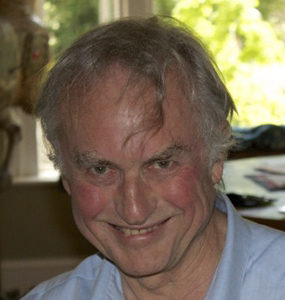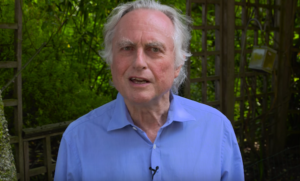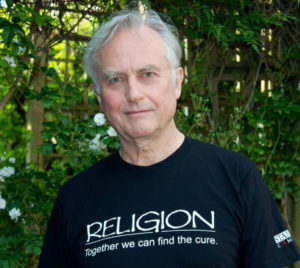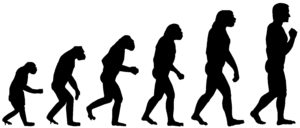 In Part I, we looked at the high-level challenges facing Dawkins’ description of Darwinism in The Blind Watchmaker. Now we shift our attention to some of the specific examples and “evidences” he uses to build the case. Continue reading
In Part I, we looked at the high-level challenges facing Dawkins’ description of Darwinism in The Blind Watchmaker. Now we shift our attention to some of the specific examples and “evidences” he uses to build the case. Continue reading
Tag Archives: Richard Dawkins
Is the Watchmaker Blind? – Part I
 Richard Dawkins wrote The Blind Watchmaker to provide a “non-miraculous account of the existence of complex adaptations.”1 The Economist magazine says it is “as readable and vigorous a defense of Darwinism as has been published since 1859.” Logic & Light has addressed the theory of evolution before, but it makes sense for us to review and critique this book to ensure both sides of the debate are adequately considered.
Richard Dawkins wrote The Blind Watchmaker to provide a “non-miraculous account of the existence of complex adaptations.”1 The Economist magazine says it is “as readable and vigorous a defense of Darwinism as has been published since 1859.” Logic & Light has addressed the theory of evolution before, but it makes sense for us to review and critique this book to ensure both sides of the debate are adequately considered.
We will do so in a two-part series. This first section will address the high-level arguments Dawkins makes and the problems with them. The second article will go into some of Dawkins more specific claims. Continue reading
Evolution, Part II: What Genetics Really Tells Us
While the genetic evidence at first seems like one of the strongest arguments in favor of evolution, it’s ultimately the theory’s largest Achilles heel. Ironically, the more science has learned about DNA and genetics, the more apparent evolution’s challenges have become. Continue reading
Evolution, Part I
Logic & Light has touched on the issue of evolution in several posts. But since this topic is of such importance, a more in-depth, multi-part analysis is warranted.
Evolution is a pivotal issue for several reasons. First, it is the very foundation of the naturalistic worldview. According to Richard Dawkins, Darwin’s philosophy made “it possible to be an intellectually fulfilled atheist1.” If evolution is not true, naturalism is unquestionably false. Continue reading
Dawkins’ Delusions: Part IV
 Here, we conclude our four-part chapter-by-chapter response to Richard Dawkins’ The God Delusion.
Here, we conclude our four-part chapter-by-chapter response to Richard Dawkins’ The God Delusion.
Links to other installments: Part I, Part II, Part III
Chapter 8 Summary
Chapter 8 is Dawkins’ argument for why religion is not just something we should dismiss and ignore but rather actively oppose. Religion is not just wrong, it’s dangerous. Continue reading
Dawkins’ Delusions: Part III
 Here, we continue with our four-part chapter-by-chapter response to Richard Dawkins’ The God Delusion. This is part III.
Here, we continue with our four-part chapter-by-chapter response to Richard Dawkins’ The God Delusion. This is part III.
Links to other installments: Part I, Part II, Part IV
Chapter 5 Summary
In chapter 5, Dawkins seeks to answer how “the anti-factual, counter-productive fantasies of religion” could have developed so universally among mankind from a Darwinian, evolutionary perspective. After discussing a few theories, Dawkins leans toward the idea that religion did not evolve because it was beneficial, but rather as a by-product of some other characteristic that contributed to survival. Continue reading
Dawkins’ Delusions: Part II
 Here, we continue with our four-part chapter-by-chapter response to Richard Dawkins’ The God Delusion. This is part II.
Here, we continue with our four-part chapter-by-chapter response to Richard Dawkins’ The God Delusion. This is part II.
Links to other installments: Part I, Part III, Part IV
Chapter 3 Summary
The purpose of chapter 3 is to disprove the various arguments in favor of God’s existence. Dawkins addresses Thomas Aquinas’ five proofs, the ontological argument, and various arguments from beauty, personal experience, scripture, and admired religious scientists, along with Pascal’s Wager, and Bayesian probabilities. Continue reading
Dawkins’ Delusions: Part I
Links to other installments: Part II, Part III, Part IV
Part 1: Introduction
 Richard Dawkins is perhaps the most well-known of a new generation of activist atheists that includes Daniel Dennett, Sam Harris, and the late Christopher Hitchens. The God Delusion is his attempt to disprove the “God Hypothesis” and he hopes that “religious readers who open it will be atheists when they put it down.”1.
Richard Dawkins is perhaps the most well-known of a new generation of activist atheists that includes Daniel Dennett, Sam Harris, and the late Christopher Hitchens. The God Delusion is his attempt to disprove the “God Hypothesis” and he hopes that “religious readers who open it will be atheists when they put it down.”1.
With over 3 million copies sold, The God Delusion is probably one of the most widely read and influential atheist manifestos available. It’s definitely not a new book. However, we felt compelled to address it because it has been so widely read and because its arguments, even though they are poorly constructed, continue to influence people. Continue reading


